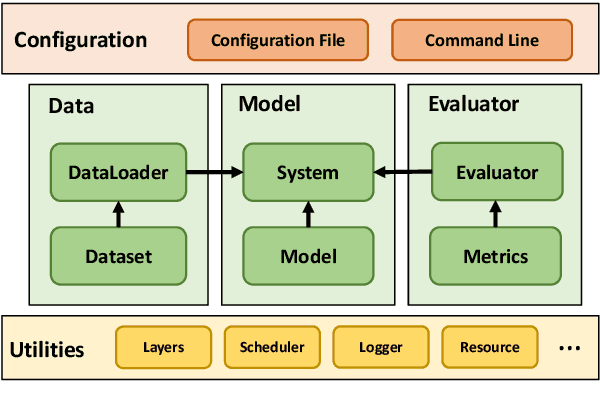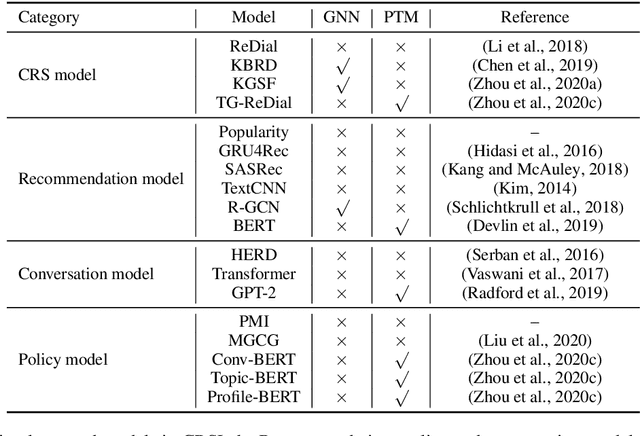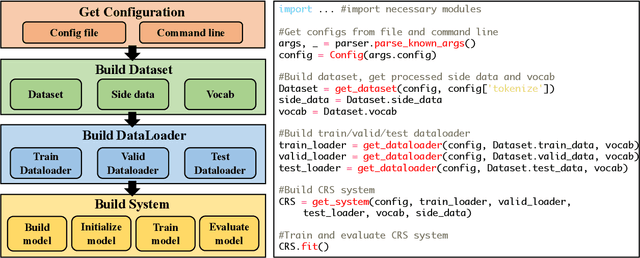Chenzhan Shang
Multi-grained Hypergraph Interest Modeling for Conversational Recommendation
May 04, 2023Abstract:Conversational recommender system (CRS) interacts with users through multi-turn dialogues in natural language, which aims to provide high-quality recommendations for user's instant information need. Although great efforts have been made to develop effective CRS, most of them still focus on the contextual information from the current dialogue, usually suffering from the data scarcity issue. Therefore, we consider leveraging historical dialogue data to enrich the limited contexts of the current dialogue session. In this paper, we propose a novel multi-grained hypergraph interest modeling approach to capture user interest beneath intricate historical data from different perspectives. As the core idea, we employ hypergraph to represent complicated semantic relations underlying historical dialogues. In our approach, we first employ the hypergraph structure to model users' historical dialogue sessions and form a session-based hypergraph, which captures coarse-grained, session-level relations. Second, to alleviate the issue of data scarcity, we use an external knowledge graph and construct a knowledge-based hypergraph considering fine-grained, entity-level semantics. We further conduct multi-grained hypergraph convolution on the two kinds of hypergraphs, and utilize the enhanced representations to develop interest-aware CRS. Extensive experiments on two benchmarks ReDial and TG-ReDial validate the effectiveness of our approach on both recommendation and conversation tasks. Code is available at: https://github.com/RUCAIBox/MHIM.
CRSLab: An Open-Source Toolkit for Building Conversational Recommender System
Jan 04, 2021



Abstract:In recent years, conversational recommender system (CRS) has received much attention in the research community. However, existing studies on CRS vary in scenarios, goals and techniques, lacking unified, standardized implementation or comparison. To tackle this challenge, we propose an open-source CRS toolkit CRSLab, which provides a unified and extensible framework with highly-decoupled modules to develop CRSs. Based on this framework, we collect 6 commonly-used human-annotated CRS datasets and implement 18 models that include recent techniques such as graph neural network and pre-training models. Besides, our toolkit provides a series of automatic evaluation protocols and a human-machine interaction interface to test and compare different CRS methods. The project and documents are released at https://github.com/RUCAIBox/CRSLab.
 Add to Chrome
Add to Chrome Add to Firefox
Add to Firefox Add to Edge
Add to Edge